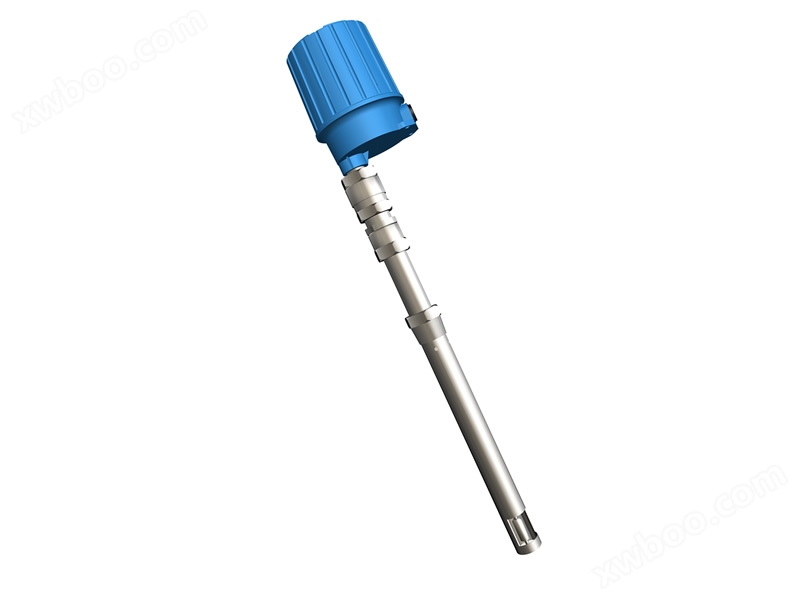
The FT8261 series is a universal guided wave radar continuous level instrument, consisting of a circuit unit and pole or cable type sensing elements. The product is mainly used for continuous level measurement and has a wide range of applications.
measuring principle
Radar, originally used in the military field, emits electromagnetic waves and receives reflected waves to measure the distance and orientation of targets.
Pulse guided wave radar is a product with our own intellectual property rights, which is a single dimensional pulse radar with a pure radar system. Instrument emission one
An extremely low-energy small pulse electromagnetic wave, which propagates along a conductor at the speed of light and encounters significant impedance changes (such as liquid surfaces),
Reflecting a certain amount of energy back, using ultra high speed circuits and devices, recording the time difference between electromagnetic wave emission and reflection reception, can be obtained
The propagation distance of electromagnetic waves is used to obtain the distance between the instrument and the liquid level (liquid level).
characteristic
Super strong data processing capability ensures reliable signal recognition
Measurement is not affected by the shape of the storage tank
Measurement is not affected by electrical characteristics, insulation characteristics, temperature, pressure, or density
The measurement shall not be affected by dust, steam and foam
No movable parts, no need for regular maintenance
Typical applications
Liquid, light slurry, particle, interface, powder
Water, acid, dilute alkali, oil level, grain, raw coal, oil-water interface, coal powder, cement, lime powder, flour
performance index
Measurement equipment level: CAT II level, transient rated voltage 2500V, cannot be used for levels other than CAT I and CAT II
Output: Two wire system, 4-20mA HART protocol
Measurement method: The software can be set as a level/distance measurement method
Power supply: 24VDC (15-35VDC) (intrinsic safety is 17-30VDC)
Power: 1W
Measurement accuracy: 0.25% FS or 15mm (whichever is greater)
Resolution: 3mm (standard)
Temperature effect: 0.1%/10 ℃ (18 ℉)
Load resistance: Output circuit load resistance capacity of 450 Ω
Environmental temperature: -40 to+70 ℃ (-40 to 158 ℉)
Process temperature: T1: -40~+420 ℃; T2:-40~270℃; T3: -40~170℃; T4: -40~105℃;
T5:-40~+70℃(-40~158 ); ℉ T6:-40~+60℃(-40~140 ) ℉
The influence of medium temperature on ambient temperature cannot exceed the requirements of the instrument for ambient temperature
Response time:<1 second
Delay: Adjustable from 1 to 90 seconds (software adjustable)
Static spark protection (for sensors): anti surge impact 1KV, anti-static 4KV/8KV
RF protection (built-in filter): The whole machine is tested by injecting current through a 10V/m electromagnetic field and a 3V/m electromagnetic field in space
Range: 0~5m (hard pole), 0~25m (soft cable)
Installation: Vertical installation
Electrical interface: M20 × 1.5 (optional 3/4 "NPT)
Process connection: NPT thread installation (standard, optional BSPT), 4 "flange installation (GB standard, other optional)
Shell material: die cast aluminum with epoxy coating
Shell protection: Complies with IP67 protection standard
Explosion proof grade: Exia IIC T1~T6 Ga; Exia IIB T1~T6 Ga (insulated probe)
Certification: PCEC/NEMSI. For other certifications, please consult the manufacturer

